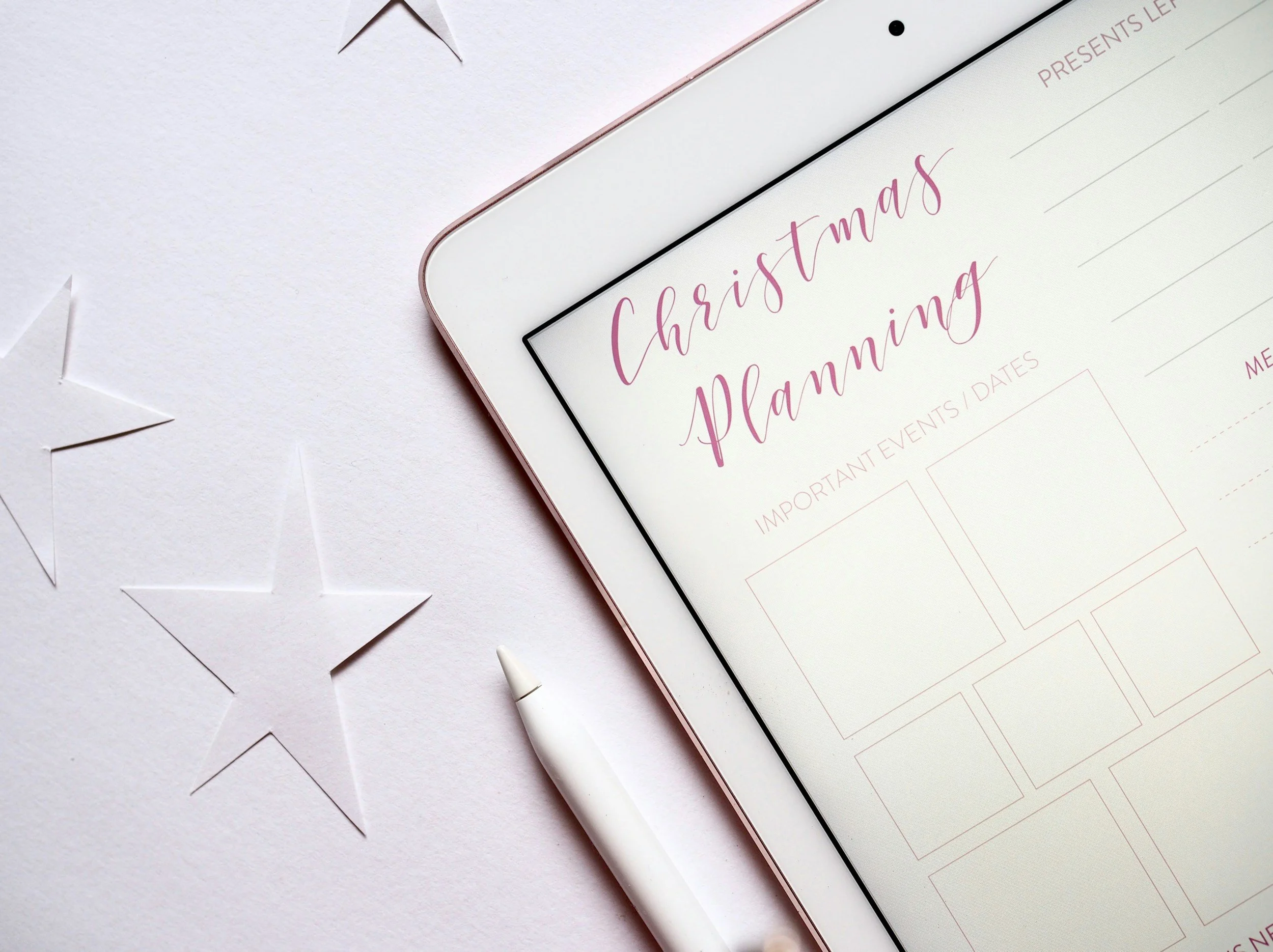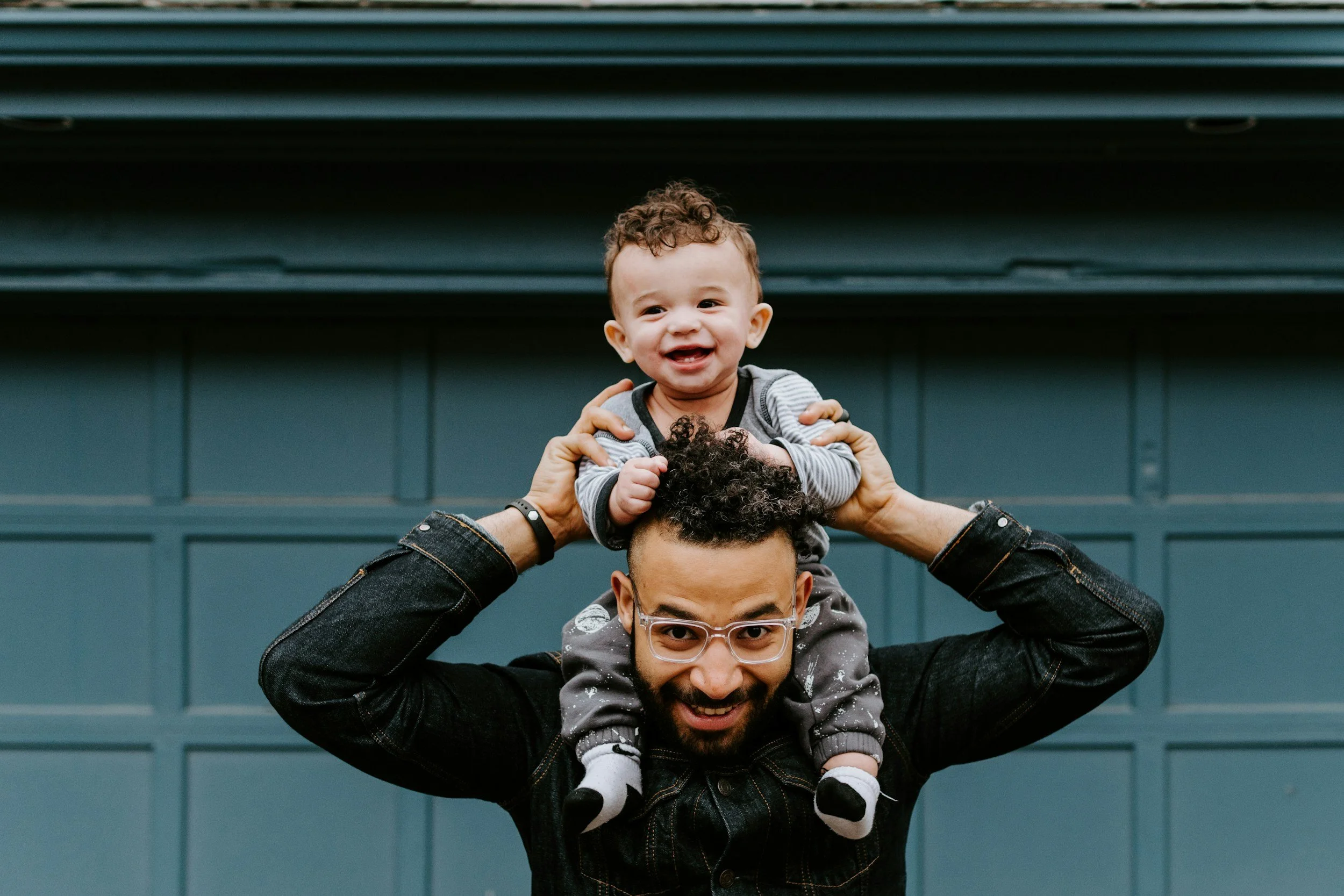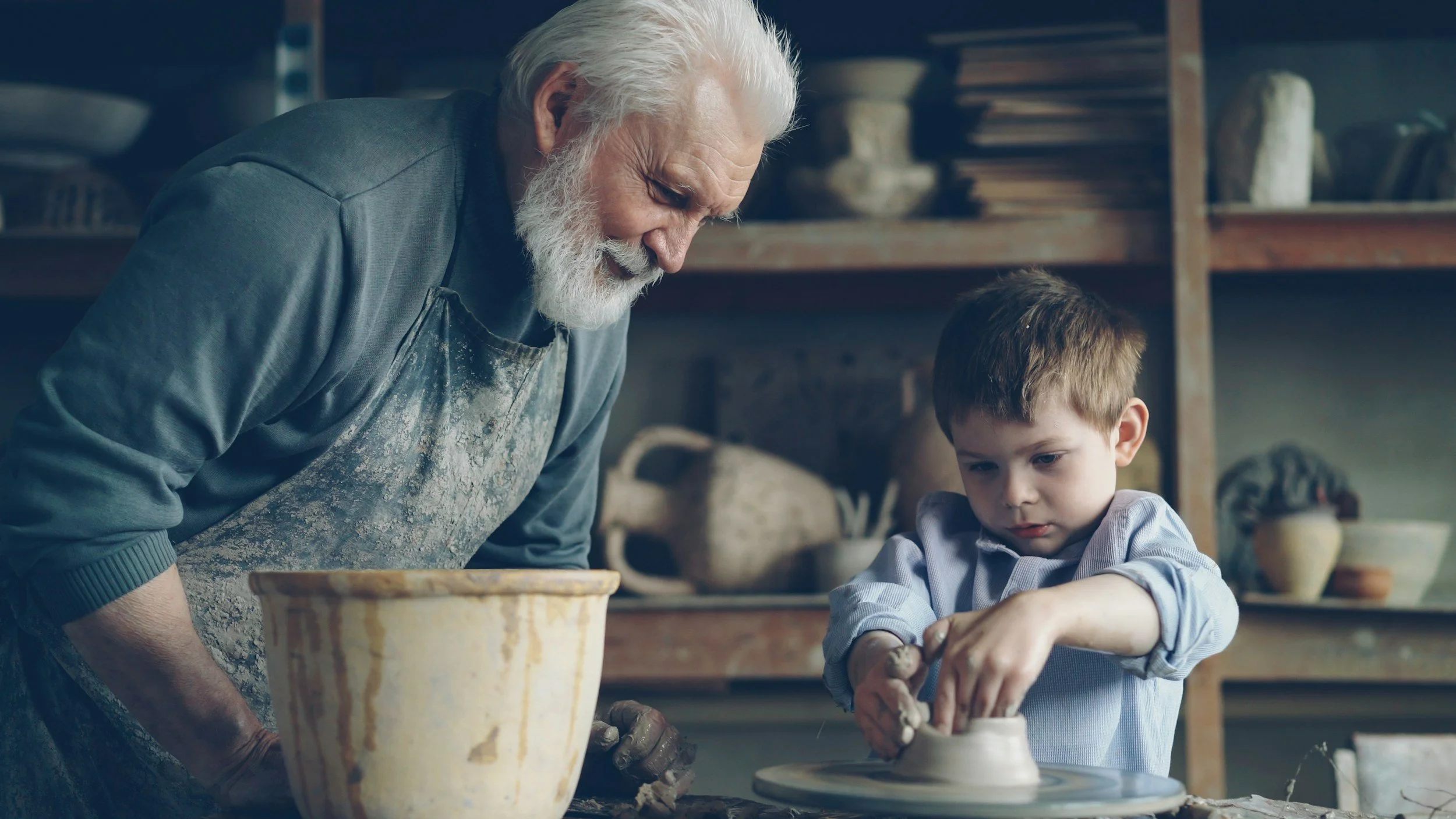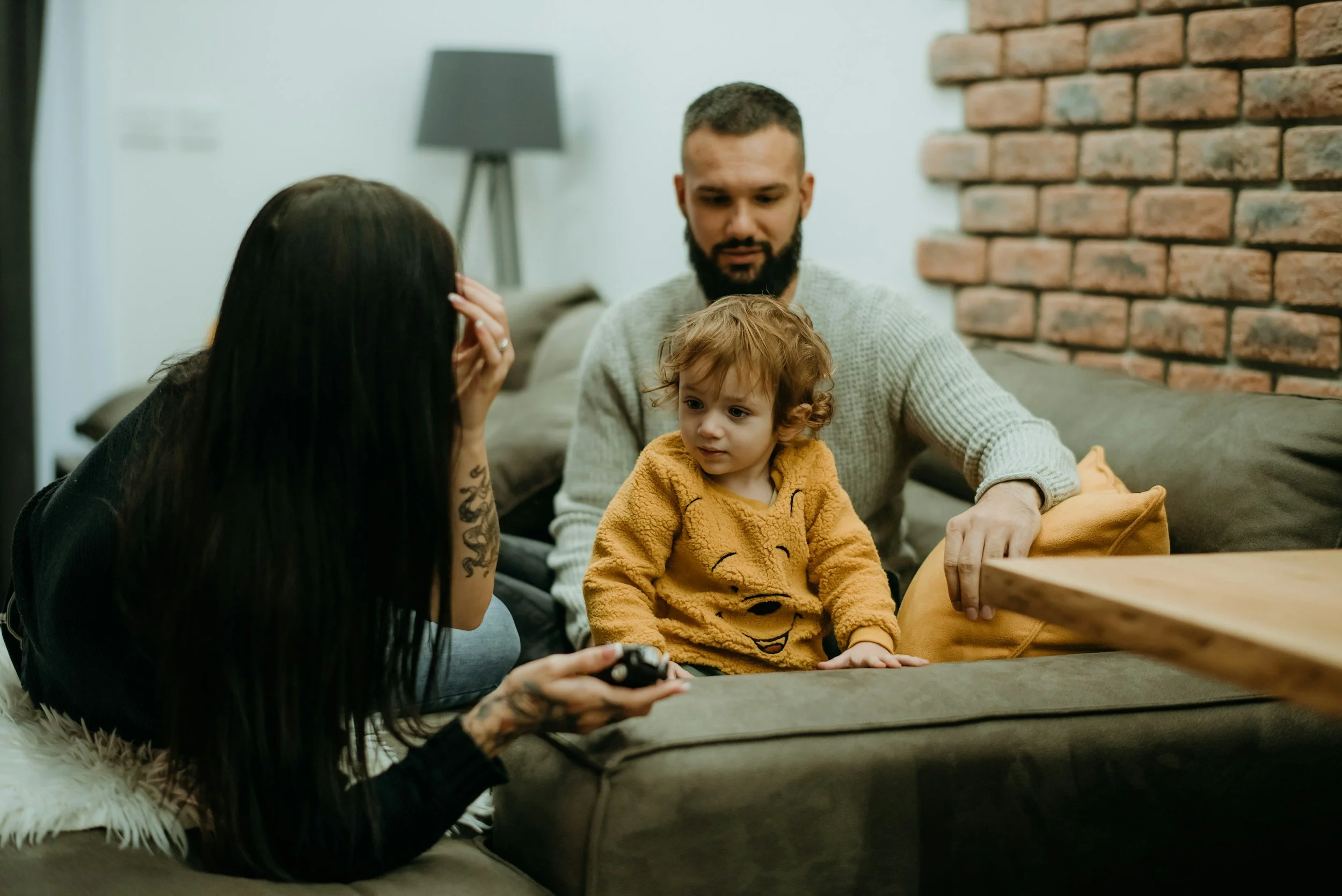
From Stand-Off to Shared Ground: How to Turn Conflict Into Collaboration
Most relationship conflict doesn’t fail because partners don’t care—it fails because both people are trying to be heard at the same time. When emotions run high, your partner’s “glass” is already full, and no amount of explaining will land. This post explores why defensiveness shows up so quickly in couples, how curiosity helps create emotional safety, and five therapist-recommended questions that can turn conflict into connection.

The Roommate Phase: Why It Happens—and How to Find Your Way Back to Each Other
The roommate phase is a normal part of long-term relationships, especially for couples raising young kids. It’s not a sign that love is gone—it’s a signal that your relationship needs a little extra attention. Learn how to reconnect, rebuild intimacy, and bring the ‘we’ back into your relationship.

Making the Invisible Load Visible: Holiday Checklist for Families
As the school year ends and Christmas begins, many parents—especially mums—carry a growing, invisible mental load. From school events to holiday planning, one partner often holds it all quietly. Making that load visible is the first step to sharing it. Sitting down with the checklist turns a hidden burden into a shared responsibility—and, depending on your children’s ages, some tasks can even become theirs. Visibility creates balance, and balance protects connection.

Helping Kids Understand Friendship Dynamics: The “Fill a Cup” Activity for Parents
As parents, it’s tough to watch our kids navigate tricky friendships. We can’t (and shouldn’t) choose their friends for them, but we can help them understand what it feels like to be in relationships that pour into them instead of draining them. The “Fill a Cup” activity is one of my favorite ways to make this visible for kids — and it’s just as enlightening for parents.

“I Don’t Want to Be That Wife”: What Resentment Is Really Trying to Tell You
These words echo through the couples therapy room all the time: “I don’t want to be that wife.” The one who says no to the surf trip, the gym session, or the boys’ weekend—not because she wants control, but because she’s tired, overwhelmed, and longing to feel like she’s not carrying it all alone.
This post explores how resentment often grows from self-silencing and emotional disconnection, not selfishness. Through the lens of attachment and Emotionally Focused Therapy, we’ll look at what your emotions might be trying to tell you—and how to begin asking for what you need without guilt, blame, or shame.

“Why Should I Thank Them for Doing What They’re Supposed to Do?”
Gratitude doesn’t mean lowering your standards. You can still want respect, reciprocity, and fairness. But noticing effort — even when it’s expected — is how we make the load feel shared. And in parenting, that shared load matters more than ever.

Helping Your Child Navigate Envy: The Hot Chocolate Trick
Sibling envy can sneak up in unexpected ways—like a sudden desire for a drink they didn’t want five minutes ago. In this post, I share a real-life parenting moment and a gentle visualisation technique that helps kids move beyond comparison and tune into what they truly want.

5 Amazing Things Dads Do for Their Kids
Inspired by Dr. Anna Machin’s The Life of Dad, this post explores five impactful ways dads influence their children’s emotional and psychological development. From building resilience to shaping identity and redefining fatherhood, learn why a father’s role is more vital than ever.

When Your Plate Is Full and No One in Your Family Sees You: the Emotional Overload in Parenthood
There’s a moment many parents know too well—your plate is overflowing, and yet, more keeps getting added. You feel unseen, unconsidered, and completely at capacity. This post gently explores how to tune into what your body and emotions are telling you, how to honor your limits, and what it could mean to choose yourself in the midst of it all.

"Hi, Jelly!" — Helping Kids Name and Navigate Sibling Jealousy
Sibling jealousy can be intense—but it’s also an invitation. In this post, therapist KJ Bennett shares a playful, emotionally intelligent way to respond when one child feels left out: meet them with curiosity, not correction. Learn how a simple "phone call to Jelly" can transform rivalry into connection.

Supporting Children Through Grief: Book Recommendations for Parents
Talking to children about death is one of the hardest conversations a parent can face. As a therapist, I’ve supported families through the heartbreak of losing a child, a grandparent, and everything in between. These moments are incredibly tender, layered, and complex—not just for adults, but for children too.
Kids experience grief differently. They’re not being selfish when they ask how a loss affects their daily life—they’re simply trying to understand a huge shift in their world. That’s why it’s so important to prepare before you're in the middle of it. One of the most helpful tools I've seen is a good picture book—something that offers language, comfort, and a safe place for feelings to land.
In this post, I’m sharing six of my go-to children’s books on grief and loss—books that open doors to conversation, offer emotional grounding, and remind children (and adults) that love and memory are never really gone.

Partner vs. Kid: How to Show Up for Both in the Heat of Conflict
In the heat of a parenting conflict, it’s easy to forget that we’re not just managing a child’s behavior—we’re navigating the emotional safety of our entire family. When your partner and child are locked in a power struggle, the urge to step in, fix, or take sides can be strong. But there’s a third option: becoming a secure bridge. Someone who holds space for both, without judging either. It starts with grace, a clear sense of the goal, and the courage to show up with empathy—even when things are messy.

Thawing the Freeze: How Couples Find Each Other Again After Emotional Distance
Sometimes I sit across from a couple and I feel it before a word is spoken—something heavy in the room. Not anger. Not conflict. Just a quiet, aching stillness. Two people who used to reach for each other now sit like strangers, dulled by years of disconnection. It’s not that they don’t care. It’s that they’ve learned to protect their hearts—because caring has come to feel too painful.
This isn’t failure. It’s survival.
But emotional deadness doesn’t have to be the end of the story.
With time, care, and small vulnerable steps, protection can give way to connection again.
This is how healing begins.

When Siblings Need Space: How Separating Zones Can Reduce Conflict at Home
Struggling with sibling fights at home after a peaceful school day? Discover how creating simple separating zones can help reduce conflict, support emotional regulation, and bring more peace to your household. Learn practical strategies to give your kids the space they need to reset and reconnect.

One Wants Space, The Other Wants Connection: Navigating Autonomy and Togetherness in Couples Therapy
As a couples therapist, I often meet partners who love deeply but feel chronically out of sync. A common—and emotionally charged—dynamic I see is the tension between one partner’s need for independence and the other’s longing for closeness. This push-pull isn’t about personality flaws but how different nervous systems seek safety.
One partner may need solitude and quiet to regulate; the other craves reassurance and emotional presence to feel secure. When one withdraws, the other pursues, creating a cycle of misunderstanding.
In therapy, I help couples reframe this pattern: both are wired for connection, just in different ways. Small gestures like saying, “I’m stepping away to recharge, but I’m not stepping away from us,” can build the emotional safety needed to break the cycle.
Ultimately, relationships thrive not by choosing autonomy or closeness—but by learning to hold both with curiosity, empathy, and presence.

Couples Communication Issues: What’s Really Going On and How to Reconnect
"I just don't know how to talk to them in a way that they understand me."
As a couples therapist, I hear this all the time—and I get it. Few things feel more frustrating than speaking from the heart, only to be met with distance or defensiveness. But here's what I want you to know: this isn't a sign that your relationship is broken. More often, it's a sign that you’re both trying to protect the relationship—just in different ways.
In this post, I’ll walk you through why communication breaks down, the hidden needs behind each partner’s behavior, and a simple but powerful shift that can help you reconnect—without losing yourself in the process.

“When My Child Is Disrespectful — What Do I Do?”
When a child demands something right now or speaks disrespectfully, it’s often a sign they’re struggling with control, frustration, or connection. How we respond in that moment — whether we escalate or hold calm boundaries while validating their feelings — can change the entire trajectory of the conversation. Parenting isn’t about demanding respect in the heat of the moment; it’s about modeling it through patience, understanding, and clear limits.

How Do I Talk About the Hard Stuff—with My Kid and My Partner?
No single conversation can carry the weight of something so emotionally layered.
But when we turn a Big Talk into a series of smaller conversations, we create space—for reflection, for safety, for connection. And that space is where real understanding begins.

When One Partner is Hesitant About Therapy: How to Approach the Conversation with Care
If your partner is hesitant about couples therapy, you're not alone. Many couples struggle to communicate or break out of repeating conflicts. Therapy is not about blaming—it’s about building. How you talk to your partner about going to therapy matters.

Why Is It So Hard to Put Certain Arguments to Bed?
Many couples struggle with recurring arguments that never seem to get resolved. As a couples therapist, I often see that the issue isn't just the topic—it's the negative communication cycle fueled by a lack of emotional safety. Without vulnerability and accountability, partners stay stuck in conflict patterns that damage connection. Whether you're arguing about parenting styles, communication, or emotional needs, breaking this cycle is key to lasting relationship healing. Couples therapy can help you build emotional safety, speak from vulnerability, and take accountability—so your arguments don’t keep repeating.
